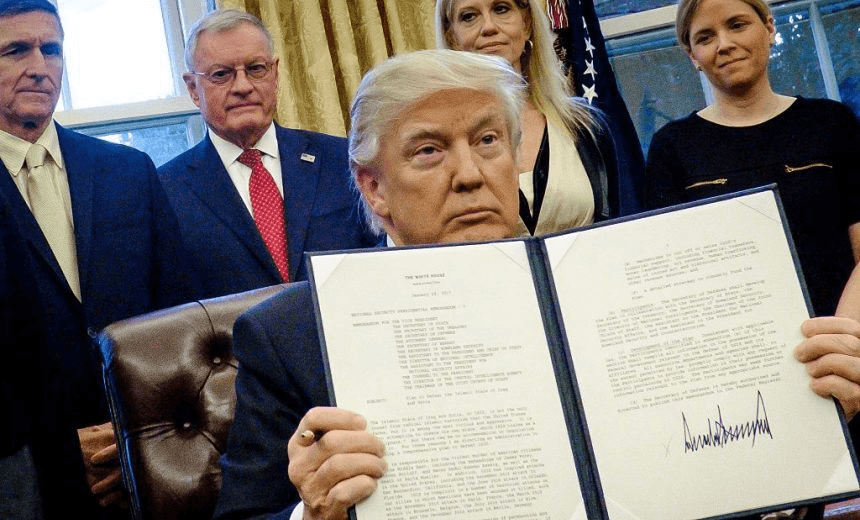We need not just to boldly condemn the current US approach, but to act, by doubling in our refugee quota, argues Hon Peter Dunne.
One of the more famous observations of the third President of the United States, Thomas Jefferson, is that eternal vigilance is the price of liberty. It is a point that the world should perhaps have pondered more when candidate and now 45th President Donald Trump pledged during the last presidential election campaign to ban Muslim immigration to the United States. No-one then took the pledge to be anything more than empty campaign rhetoric, and outside of the United States even fewer people expected him to be elected to office anyway.
Well, now it has happened, and to confound matters, this most erratic and unpredictable of presidents seems hell-bent on keeping his election promises, at least the more outlandish of them. All this puts the rest of the world, especially America’s allies and close friends in a quandary. Do they turn a blind eye to what he is doing, in the hope, perhaps, that after the flush of excitement wears off, the president will “come to his senses”, or do they speak out now to possibly circumvent the next move? The Statue of Liberty does still bear the legend “your poor, your huddled masses”, after all!
From New Zealand’s perspective, the response should be loud and clear. What is currently happening in the United States is an outrage, certainly contrary to the principles the Founding Fathers like Jefferson espoused so eloquently, and to the historical practice of that nation, from the nineteenth century migrations, through to the German and Jewish refugees of the 1930s, and the Asian refugees of the 1970s.
As a small nation, New Zealand has historically played its part, albeit parsimoniously at times. The resettlement of the Polish children under Peter Fraser is our shining light, but we have responded on other occasions as well. We have always acted on the basis of perceived need, rather than the political views or religious affiliations of those in strife.
Not only, therefore, does New Zealand need to loudly condemn the current United States’ approach, like Canada, Britain and Germany – the countries we like to associate with. But more than that, we need to act. A doubling in our refugee quota has long been argued for.
We could do so easily now, but our approach needs to change. Resettlement policy should not just be the preserve of central government, but needs to involve local government, business and the community far more than is currently the case. For example, in the current circumstances, central government could determine that it will double the quota to enable US Green Card holders, denied entry to the US by the Trump ban, entry to New Zealand, provided local government, business and local communities could find jobs and accommodation for them.
The goodwill to emerge for New Zealand would be significant, and the opportunity to help disadvantaged people with the capacity to make a contribution substantial. In that way, moral opposition to Trump policy (which some might regard as no more than hot air) would be balanced by practical action. A win for us, and a win for those we would be helping.
Peter Dunne is the leader of the United Future Party and a minister of the crown (though not writing here in ministerial capacity)

